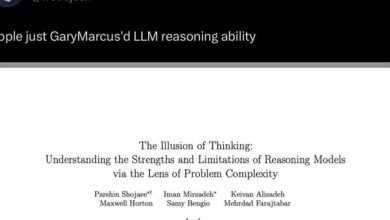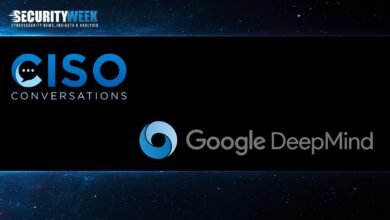Google DeepMind’s ‘Historic’ AI Breakthrough Solves Complex Problems

▼ Summary
– Google DeepMind claims a historic AI breakthrough with its Gemini 2.5 model, comparing it to past milestones like Deep Blue and AlphaGo.
– The AI won a gold medal at an international programming competition by solving a complex fluid distribution problem that stumped human teams.
– It ranked second overall among 139 top programmers, failing only two of twelve tasks, and was praised as a step toward artificial general intelligence.
– Experts expressed mixed views, with some calling it impressive and transformative while others cautioned about overhyping its real-world impact.
– The achievement highlights progress in abstract reasoning and problem-solving, potentially benefiting fields like drug design and engineering.
Google DeepMind has achieved what it describes as a historic artificial intelligence breakthrough, positioning the event alongside landmark moments such as Deep Blue’s chess victory and AlphaGo’s defeat of a world champion. This milestone centers on the performance of the Gemini 2.5 AI model, which recently earned a gold medal at a prestigious international programming competition in Azerbaijan, a first for any AI system.
The challenge involved a highly intricate real-world scenario: determining the optimal way to route liquid through a network of ducts and reservoirs to achieve the fastest possible distribution. The AI successfully navigated an infinite array of possibilities in under thirty minutes, a feat that stumped every human team, including top contenders from leading universities in Russia, China, and Japan. While the model did not achieve a perfect score, failing two of the twelve tasks, its overall performance secured second place among 139 elite college programmers.
According to Google, this accomplishment represents a profound leap in abstract problem-solving and marks significant progress toward artificial general intelligence (AGI). Quoc Le, Google DeepMind’s vice-president, compared the achievement to earlier AI milestones but emphasized its broader implications, noting that the system’s reasoning extends beyond constrained environments like board games into real-world applications such as drug discovery and semiconductor design.
The model, a general-purpose AI specially trained in coding, mathematics, and complex reasoning, performed “as well as a top 20 coder in the world.” Google highlighted that success in such competitions demands deep abstract reasoning, creativity, and the ability to synthesize novel solutions to unfamiliar problems.
Not all experts are convinced of the breakthrough’s transformative impact. Stuart Russell, a computer science professor at UC Berkeley, suggested that claims of “epochal significance” may be overstated, noting that AI has excelled at programming tasks for some time. He did, however, acknowledge that solving competition-level problems requires functional code, indicating genuine progress in AI-based coding accuracy.
Michael Wooldridge of the University of Oxford recognized the achievement as impressive but raised questions about the computational resources required. Google did not disclose specific details but confirmed that the effort exceeded the capacity available to standard users of its AI Ultra service.
Dr. Bill Poucher, executive director of the International Collegiate Programming Contest (ICPC), described Gemini’s performance as a “key moment” that will help define the next generation of AI tools and academic standards.
This event joins a lineage of major AI milestones:
In 1957, Frank Rosenblatt developed the Perceptron, an early neural network that demonstrated machines could learn to recognize patterns, laying foundational principles for modern AI.
The 1997 victory of IBM’s Deep Blue over chess grandmaster Garry Kasparov illustrated how raw computational power could outperform humans in narrowly defined tasks, though its practical impact remained limited.
DeepMind’s AlphaGo made headlines in 2016 by defeating world champion Lee Sedol in the complex game of Go. Its unconventional strategies hinted at AI’s potential for original thought and problem-solving in less structured domains.
Most recently, AlphaFold’s 2020 breakthrough in predicting protein folding transformed biological research, offering new insights into disease mechanisms and drug design, a contribution later honored with a Nobel Prize.
Together, these advances illustrate AI’s evolving capacity to tackle increasingly sophisticated challenges, blending technical prowess with creative insight.
(Source: The Guardian)





